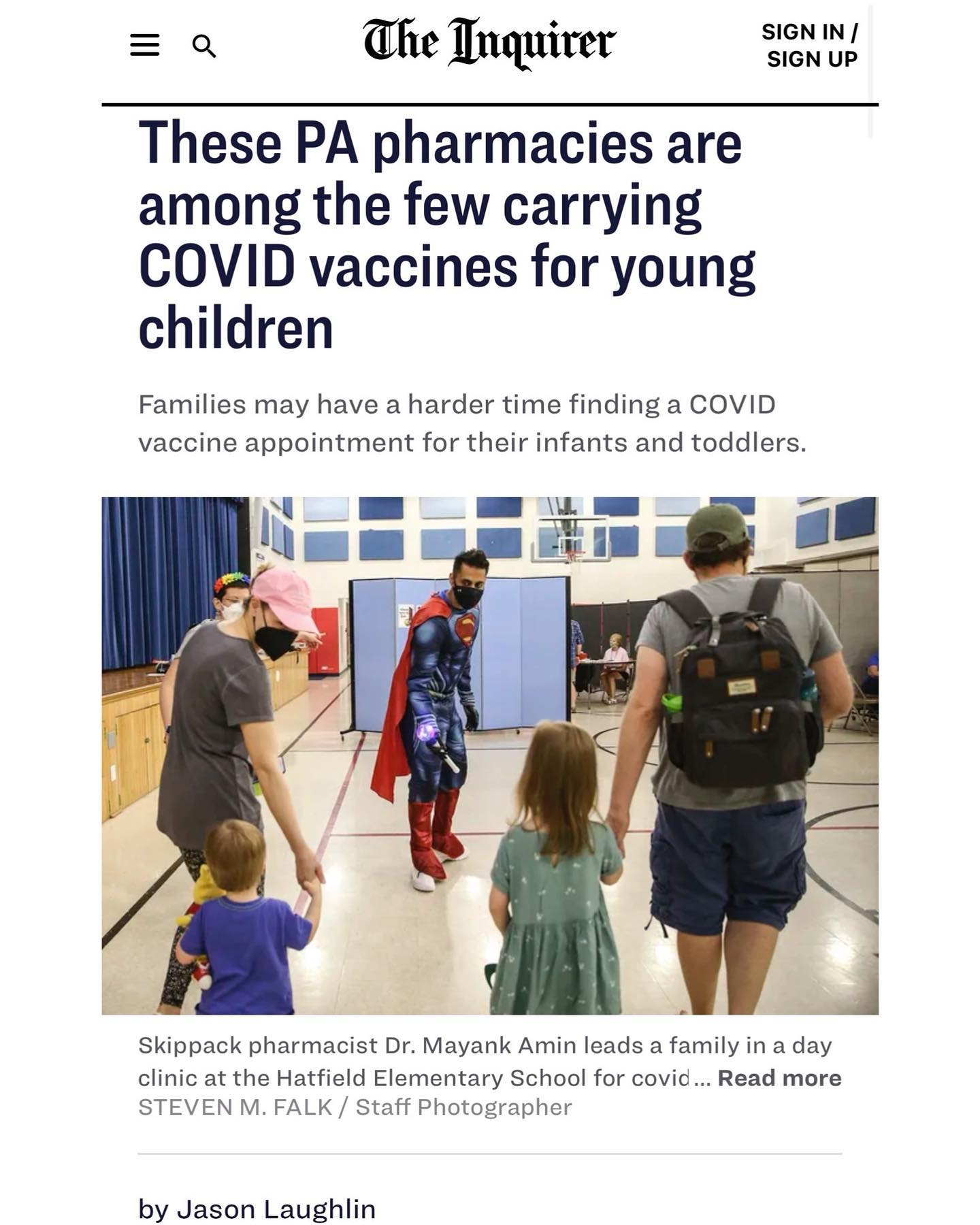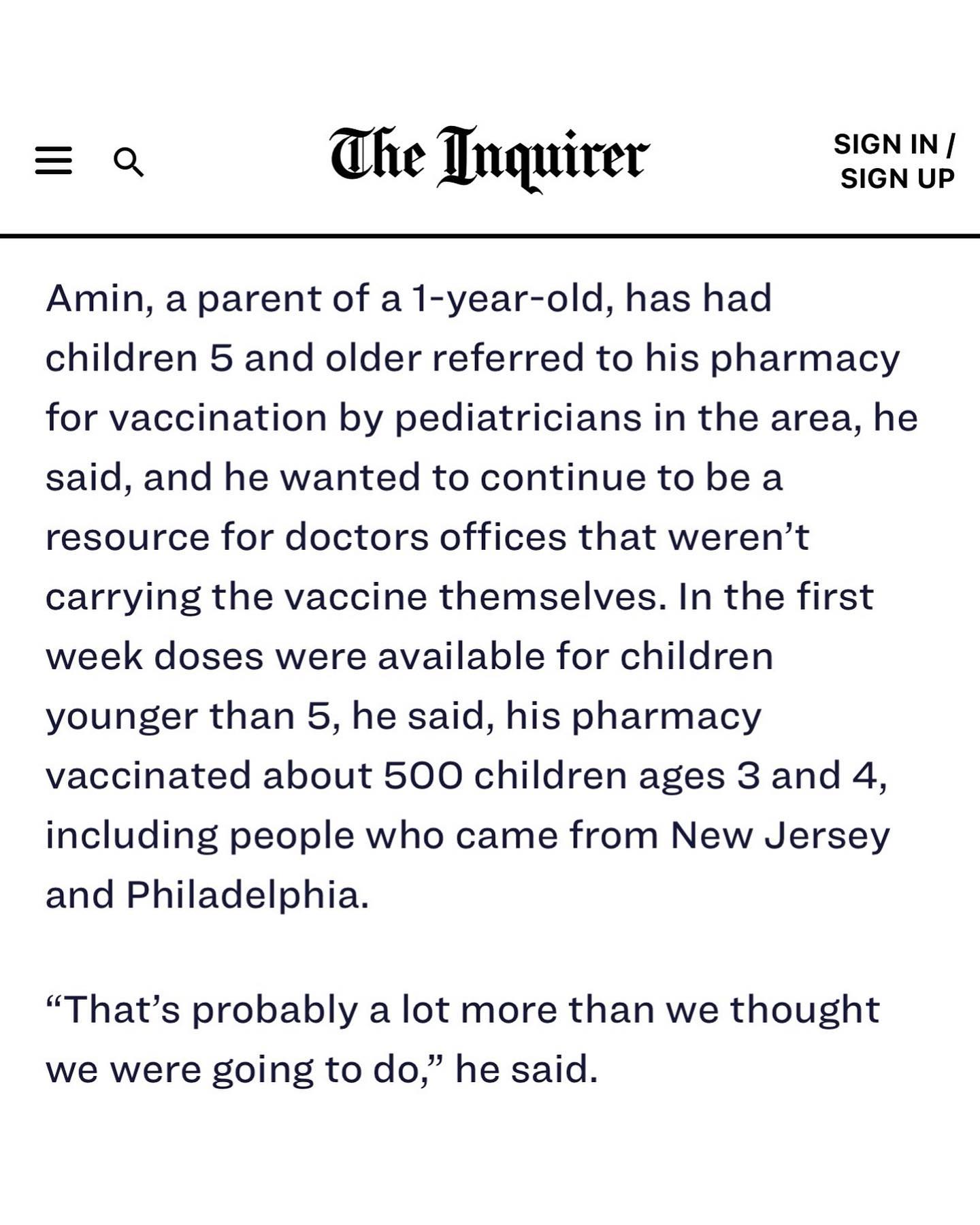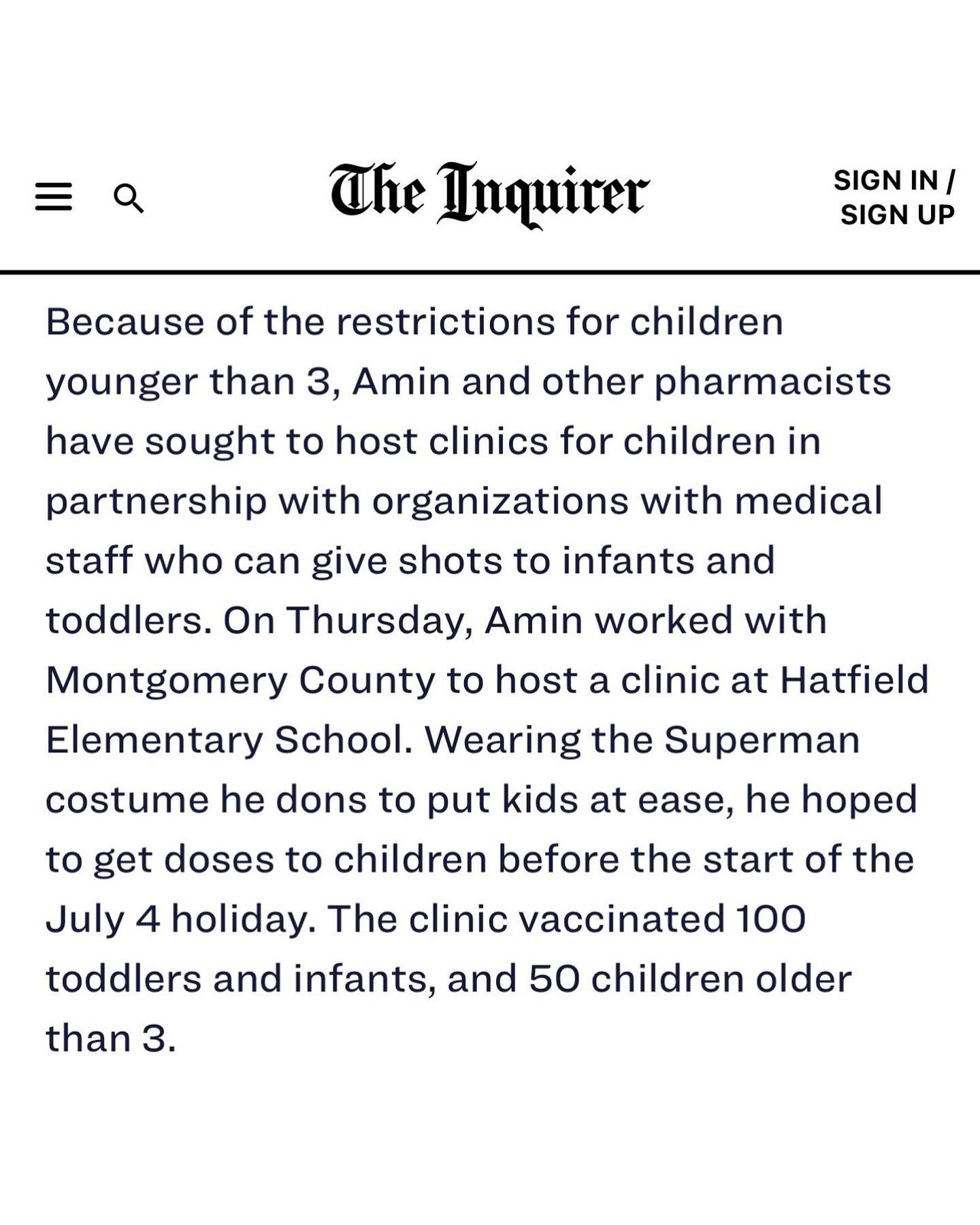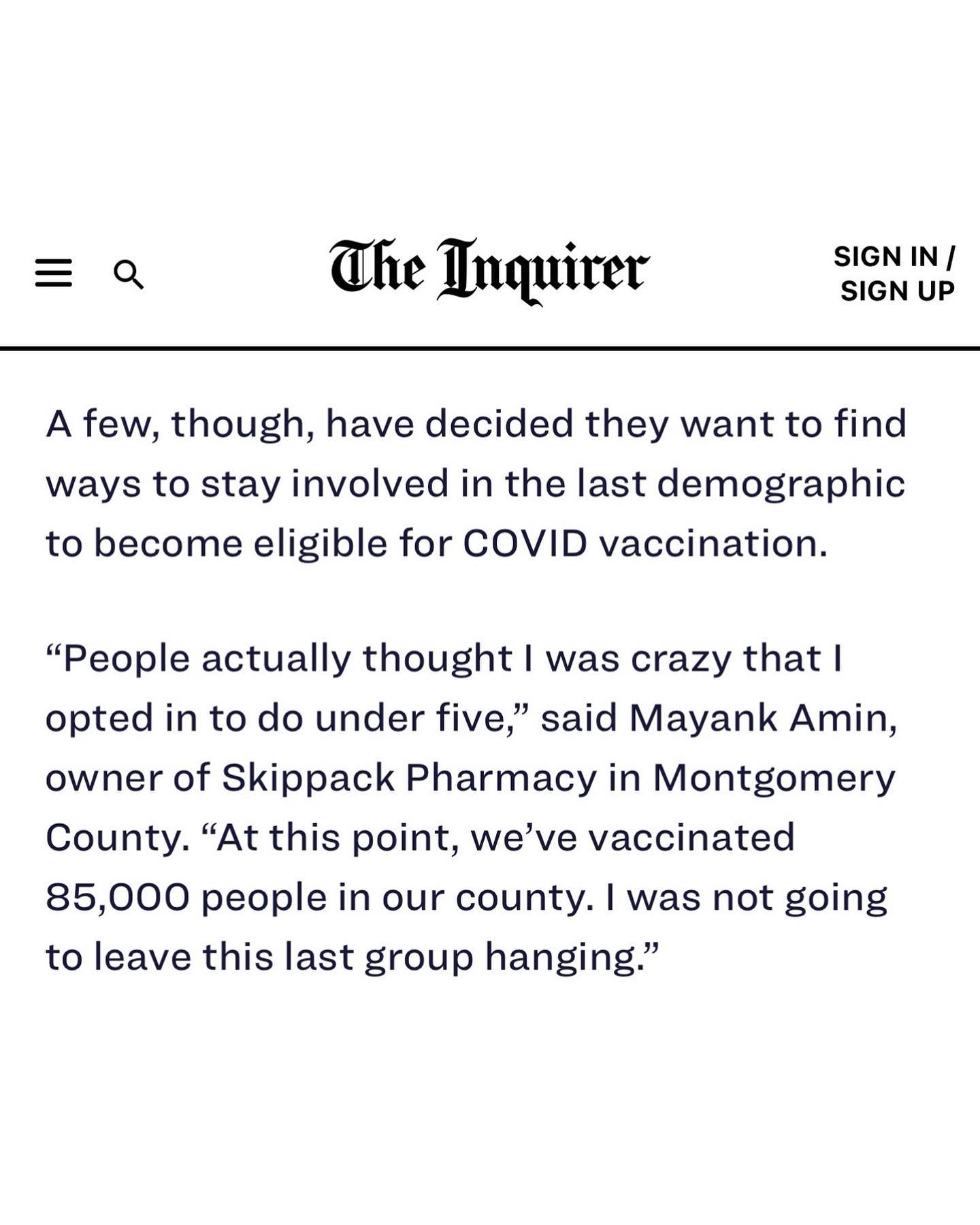Under 3 Vaccines
For this age group only, if vaccinated with Moderna previously, must stick with Moderna; likewise, if vaccinated with Pfizer previously, must stick with Pfizer.
6 Months - 2 Years (CDC Vaccine Guidance)
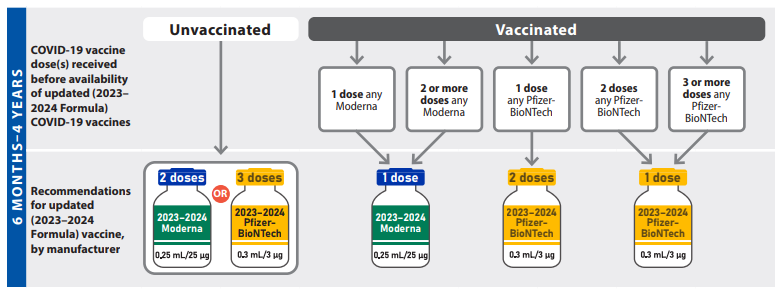
Detailed Guidance
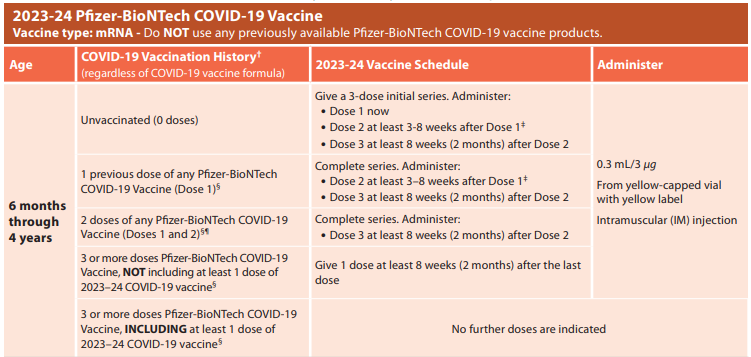
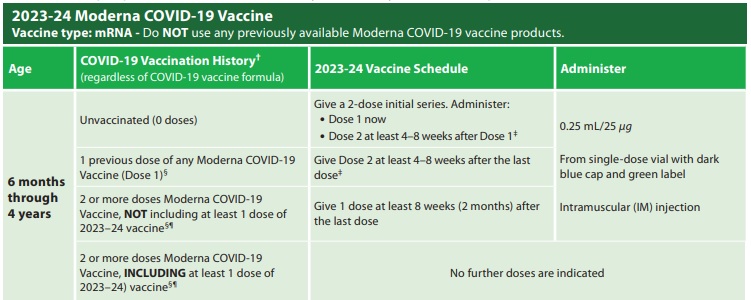
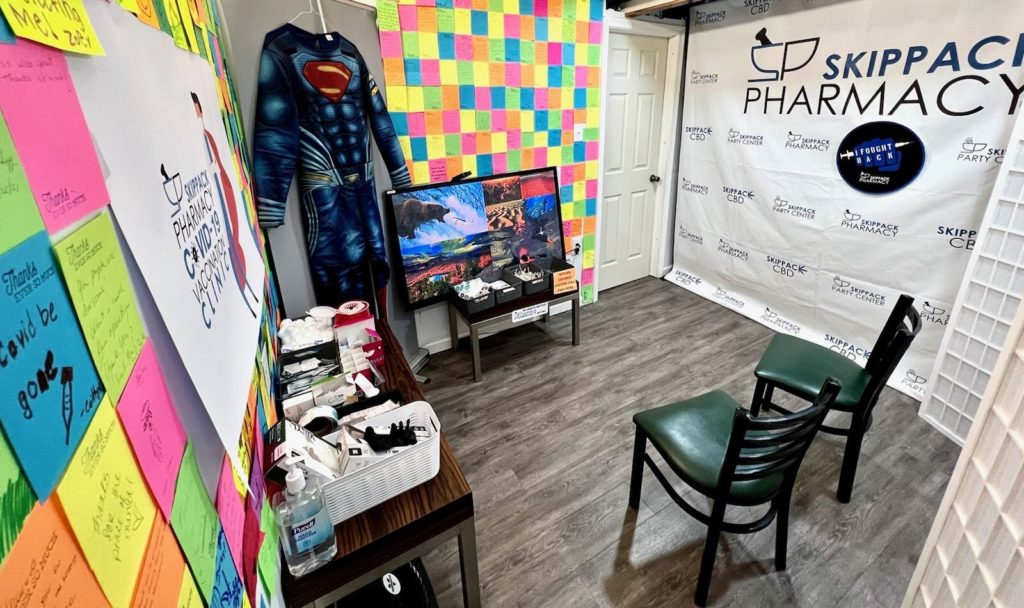
We’re Changing the Way Children View Vaccines
A Reflection on a Past Kids Superhero Vaccine Clinic from Skippack Elementary School (June 2022)
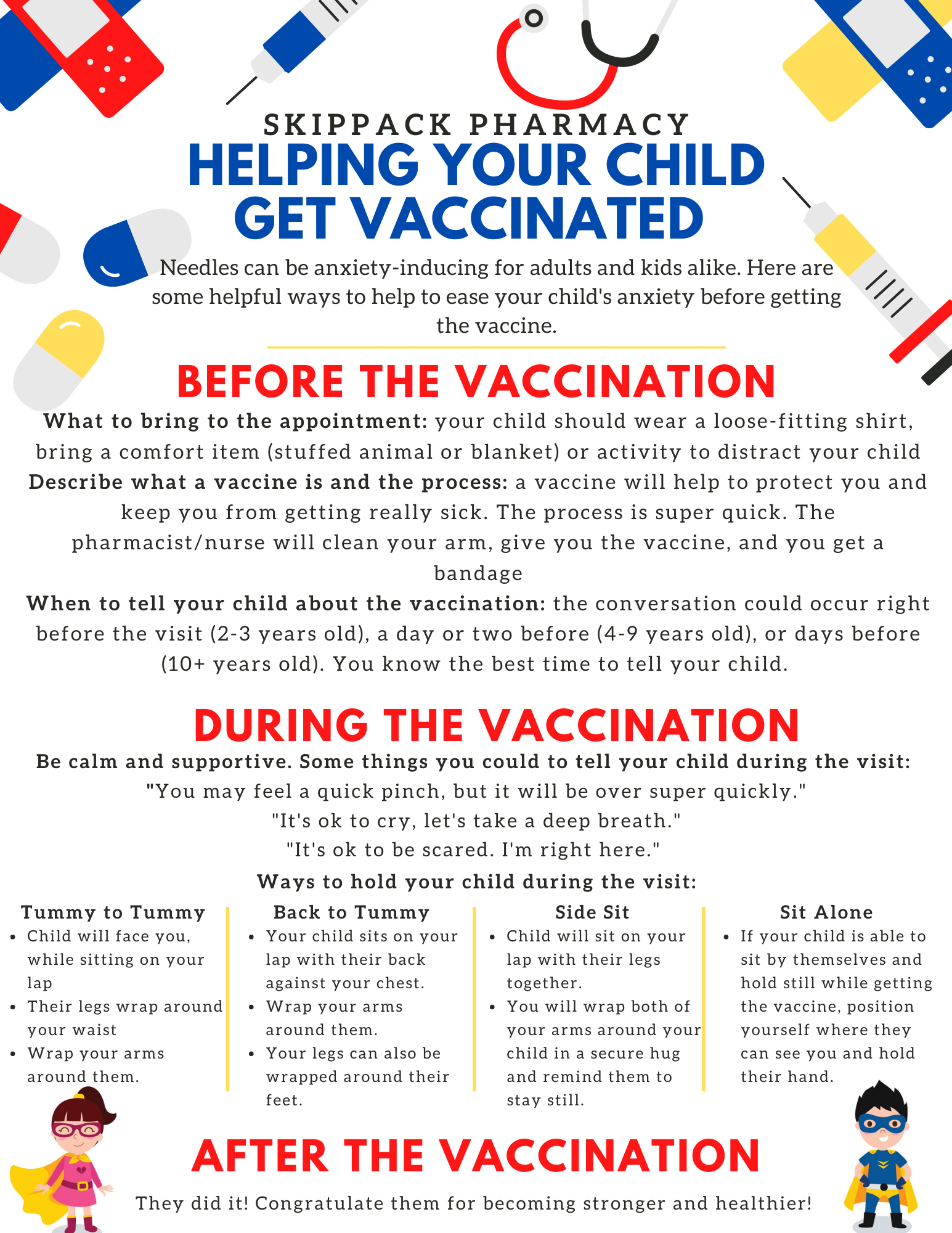
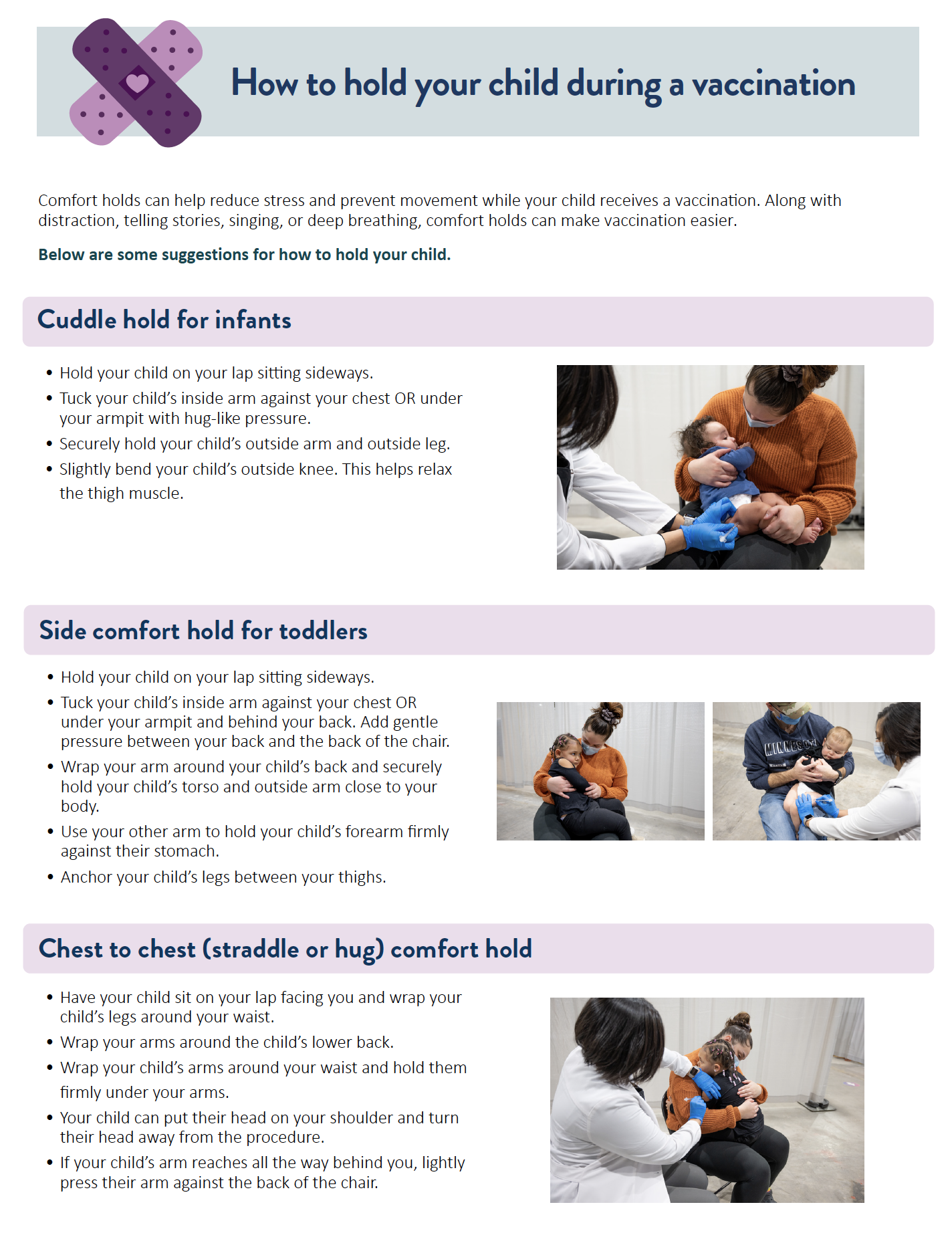
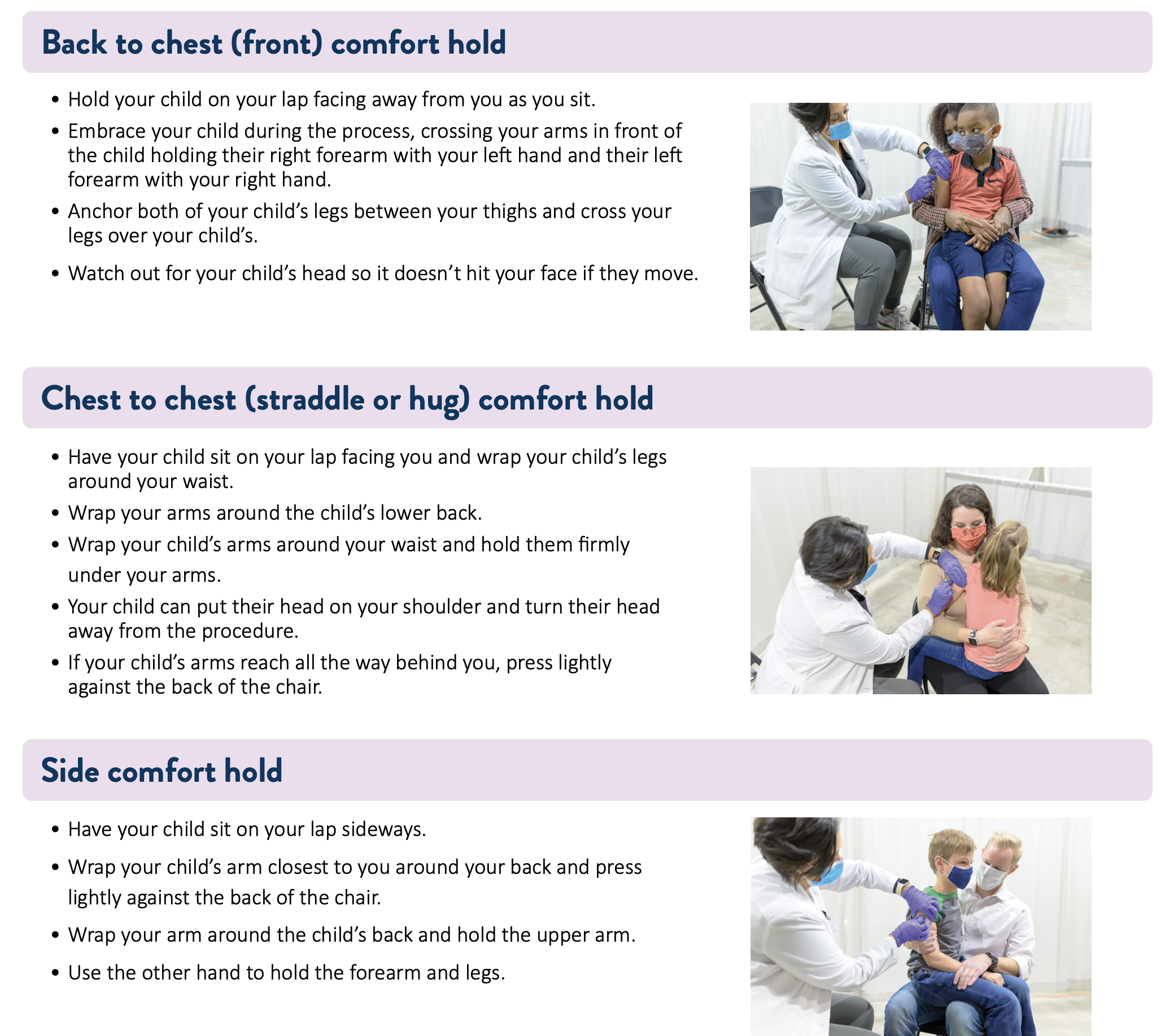

Supporting Your Child When They Receive the COVID-19 Vaccine
• Be honest.
• Identify one person to speak to your child in a calm, quiet voice.
• Identify a position that is comfortable for you and your child.
• Provide choices where choices exist: “Would you rather look at the book or blow bubbles?” instead of “Are you ready for your IV now?”
• Use specific phrases: “You are doing a great job taking deep breaths” instead of “Good job.” OR “This may take as long as your favorite cartoon” instead of “We are almost done.”
• Avoid phrases such as “You’re OK,” “Don’t cry” and “Be a big girl/boy.”
• Avoid apologizing for the procedure.
• Teach your child healthy coping strategies to increase confidence and control.
What Can Kids Expect When Getting a COVID-19 Vaccine?
Getting a COVID-19 vaccine is similar to other immunizations. Some people have side effects while others do not. Side effects are a sign that your body is responding to the vaccine, but don’t worry if you don’t have side effects — it doesn’t mean the vaccine didn’t work. People’s immune systems respond differently.
The most common side effects are:
- pain, redness, or swelling at the injection site
- tiredness
- low-grade fever
- muscle aches for a day or two after getting the
vaccine.
For the mRNA vaccines, these side effects tend to be more common after the second dose.
To help scientists monitor vaccine side effects, your parent can sign up for V-Safe to report any side effects that you feel. V-safe is a vaccine monitoring program developed by the CDC. This program will send check-in text messages after each dose of vaccine to gather data on any side effects you may experience. This system helps with continuing to monitor vaccine safety, particularly in different groups of people.
Immune responses develop a couple of weeks after getting the last dose. Right now, we know that most people who completed the full course of coronavirus vaccine are unlikely to get sick from COVID-19. However, we are still studying how long protection lasts. So far, we know it lasts for at least 6 months.
Vaccinated individuals should continue to follow the guidance related to mask wearing and social distancing suggested by the CDC and local health authorities. It may be different for people who are fully vaccinated, which occurs two weeks after getting the second dose.
As more people get vaccinated, more restrictions will be lifted. For this reason, it is important that everyone who can get vaccinated do so — not only for themselves, but also for those around them and for the community at large.
